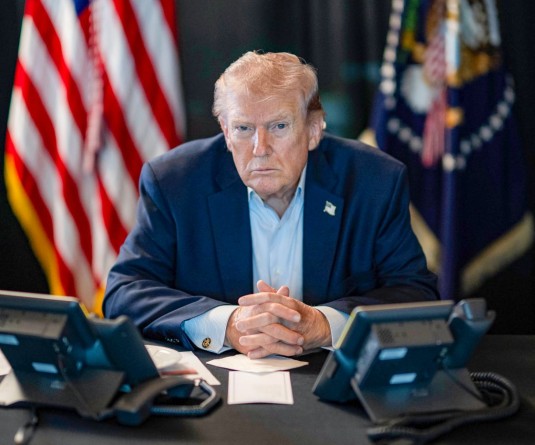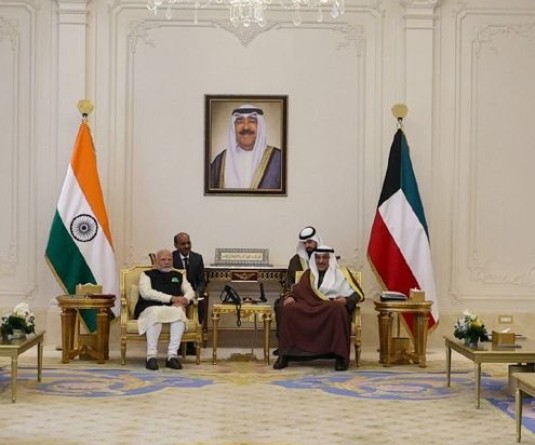
Malkangiri, February 25 (Agencies): Disctrict Collector R Vineel Krishna, who was back at work within 12 hours of homecoming after eight days in Maoist captivity, said that the incident was, “A life-changing experience that contributed to increasing one’s sensitivity to the tough life tribals lived in remote forest areas.” Krishna, who reached home late, last night, met a large number of people early in the morning. They included school children, who thronged his residence to offer flowers and congratulate him on his safe return from Maoist captivity.
“The people’s response to my plight and the support they showed, when I was in Naxalite captivity, was overwhelming. Everybody supported my family and me,” he told newsmen. Replying to a question on whether he would like to continue working in Malkangiri, he said, “We have come here to work for the people. Given an opportunity, I would like to carry forward the work that I have been doing for the people in the remote, ‘cut off’ areas.” Referring to his stay with the Maoists, Krishna said, “There were Maoists from Andhra Pradesh, Orissa, as well as Chhattisgarh. It was a difficult terrain in a forested area. It was certainly difficult to be there at night--there was always an element of fear.”
When asked how the Maoists decided to release him from captivity, Krishna said, “The turning point was the interlocutors’ appeal through the All India Radio and BBC news for my release, saying that the government has accepted their demands.” He said the rebels were connected to the outside world only through radio. “They also gave me their radio occasionally,” he added. Asked whether the government decision to release Maoist leaders to secure his freedom was the right step, Krishna quipped, “Government always takes decisions in the larger interest.” Asked about reports that said he had leanings towards left parties during his college days in Andhra Pradesh, he asked, “Who told you all these things? I had never been in politics. I am purely service-oriented.”
Expressing his gratitude towards the interlocutors as well as the state government, Krishna said he also believed that unprecedented support extended by the people, particularly the local tribal population, had contributed towards bringing pressure on the Maoists to release him from captivity. When reminded that the tribals had supported him because he had specially focussed on schemes that benefitted them, Krishna said, “People who lived in tough forest terrain mainly needed basic amenities like pension, ration cards, etc. The poor were not pushing for complicated development initiatives. For example, no one expected a rig to be taken across a reservoir, to dig borewells, if there was no bridge, in order to provide potable water to the local population. People, however, did demand development initiatives wherever progress was possible.”
Referring to the meeting at Tentuliguna where he was released, Krishna said the Maoist leaders spoke at length, and later asked him to speak to the villagers. “I told the people about the activities of the administration in regard to development works in the area. When the Maoists handed me over to the villagers, they welcomed me among them. We have not achieved anything worth mentioning and I couldn’t help wondering why they were responding with so much warmth. I didn’t know that I had so much support there.” When asked why he had joined the IAS after graduating from IIT, Krishna said, “Society gave me the best possible amenities and my efforts are focused on giving back to society what I have received from it.”
Caption: DRIVER, THE DEAREST: On his release by Maoists, Malkangiri Collector R. Vineel Krishna hugs his driver Shankar Rao on Thursday.
“The people’s response to my plight and the support they showed, when I was in Naxalite captivity, was overwhelming. Everybody supported my family and me,” he told newsmen. Replying to a question on whether he would like to continue working in Malkangiri, he said, “We have come here to work for the people. Given an opportunity, I would like to carry forward the work that I have been doing for the people in the remote, ‘cut off’ areas.” Referring to his stay with the Maoists, Krishna said, “There were Maoists from Andhra Pradesh, Orissa, as well as Chhattisgarh. It was a difficult terrain in a forested area. It was certainly difficult to be there at night--there was always an element of fear.”
When asked how the Maoists decided to release him from captivity, Krishna said, “The turning point was the interlocutors’ appeal through the All India Radio and BBC news for my release, saying that the government has accepted their demands.” He said the rebels were connected to the outside world only through radio. “They also gave me their radio occasionally,” he added. Asked whether the government decision to release Maoist leaders to secure his freedom was the right step, Krishna quipped, “Government always takes decisions in the larger interest.” Asked about reports that said he had leanings towards left parties during his college days in Andhra Pradesh, he asked, “Who told you all these things? I had never been in politics. I am purely service-oriented.”
Expressing his gratitude towards the interlocutors as well as the state government, Krishna said he also believed that unprecedented support extended by the people, particularly the local tribal population, had contributed towards bringing pressure on the Maoists to release him from captivity. When reminded that the tribals had supported him because he had specially focussed on schemes that benefitted them, Krishna said, “People who lived in tough forest terrain mainly needed basic amenities like pension, ration cards, etc. The poor were not pushing for complicated development initiatives. For example, no one expected a rig to be taken across a reservoir, to dig borewells, if there was no bridge, in order to provide potable water to the local population. People, however, did demand development initiatives wherever progress was possible.”
Referring to the meeting at Tentuliguna where he was released, Krishna said the Maoist leaders spoke at length, and later asked him to speak to the villagers. “I told the people about the activities of the administration in regard to development works in the area. When the Maoists handed me over to the villagers, they welcomed me among them. We have not achieved anything worth mentioning and I couldn’t help wondering why they were responding with so much warmth. I didn’t know that I had so much support there.” When asked why he had joined the IAS after graduating from IIT, Krishna said, “Society gave me the best possible amenities and my efforts are focused on giving back to society what I have received from it.”
Caption: DRIVER, THE DEAREST: On his release by Maoists, Malkangiri Collector R. Vineel Krishna hugs his driver Shankar Rao on Thursday.






